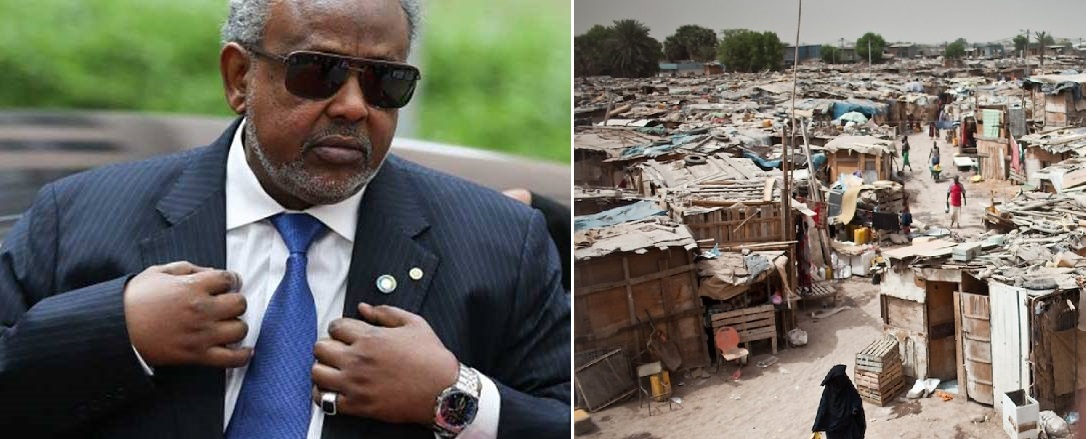Parents in the impoverished tiny Horn of Africa nation of Djibouti are increasingly losing faith in schools, as they consider the outcome akin to no e
Parents in the impoverished tiny Horn of Africa nation of Djibouti are increasingly losing faith in schools, as they consider the outcome akin to no education. In Djibouti, they say, “education doesn’t guarantee a job,” and unemployment is widespread for all segments of society. For the vast majority of Djiboutians, in particular those from low-income families, the rising cost of education, including uniforms and school supplies, is no longer affordable. Add that to the rising cost of electricity, and then you have almost everyone dropping below the poverty line.
Primary education up to age six in Djibouti is nominally free, but in reality, almost 40% of the cost of a child’s primary school education is borne by the parents, regardless of their income status. This is despite the USAID, UNESCO and UNICEF contributions of textbooks and other assistances to Djibouti’s Ministry of Education (MOE). Still the government charges each child two textbooks, where each textbook costs 6,000Fdj (Djibouti Francs) or 12,000Fdj for two text books or approximately $67.40 per child, in a country where 22.5% of the population live under $1.90 a day.
Meanwhile, after the age of six, public schools will not accept your child, where it will be up to the parents if they want to send their children to private schools.
Let us now examine poverty in Djibouti. In 2019, according to World Bank statistics, 79.4% of Djibouti population is in relative poverty; 41.9% of the population live in absolute poverty with less than $2.50 per day. Most households have no electricity and no running water, because basic electricity without an air conditioner costs about $150 a month. Water costs about $100 a month, and there is no public sewer system. As a matter of fact, it is very common to see the average person relieving himself out in the open.
In other words, Djibouti has failed its people, and as such low-income to poor families have no regard for education. And without education there will be no employment opportunities and no economic mobility whatsoever. If you are born poor in Djibouti, and that is most of Djiboutians, you are liable to remain poor for the rest of your life.
But one question remains: Is Djibouti really a poor country? Let us consider the country’s strategic location, the many international military bases, and its full to capacity international port of Djibouti, the de facto port of Ethiopia. Where do rents and revenues from all these sources and facilities go to?
Djibouti shouldn’t be a poor country; however, it remains poor for one simple reason – corruption.
Djibouti isn’t a country but a family business. Everything belongs to Ismail Omar Guelleh and his family. The petrol station that serves Camp Lemonier, the American military base or the Chinese one, or the French one, or the Japanese military base, or the trucks they rent, even the laundromat, they all belong to Ismail Omar Guelleh and his family; hence, no accountability. And with no accountability comes no responsibility. School fees, education and unemployment aren’t considered a family responsibility; accordingly, the family tells the people, “you are poor, because you chose to be poor.”
Coming back to education, the much-maligned Djibouti education system continues to suffer from a range of problems, including weak institutional structures, low quality of teachers, neglect, and lack of classroom capacity. All because of lack of government investment in education. Again, families don’t invest in public education, governments do, and there is no publicly owned and publicly responsible government in Djibouti.
As for the curriculum, it is largely borrowed from the French pedagogical system which doesn’t reflect the country’s realities on the ground. The medium is that of the French education and it is 5-4-3 system, which means elementary school is five years, middle school is four years, and secondary school is three years. However, students in Djibouti begin elementary school at age six.
On higher education, the country has only one university, the Universite´de Djibouti. The language medium is French. It provides undergraduate and graduate programs with limited capacity and faculties. Faculties offered are pure sciences, life sciences, civil and industrial engineering, and liberal arts.
Capacity is another difficulty. On lower education, 42% of classes are on double shifts, and the average primary school class size is 49 students; hence, making it challenging for teachers to effectively manage their classrooms.
For children lucky enough to make to the dwindling classes, almost all the parents are complaining that children in Grade 4 and 5 can hardly read or write. They say, “they have only learned how to sing.” Some parents are now even complaining that their secondary school children are unable to write down their names correctly.
Teachers, one of the lowest paid civil servants in Djibouti, are also complaining. One teacher Daljir spoke to who wants to remain anonymous told us that “many students don’t have textbooks, no school stationery and even no uniform because their parents can’t afford it.”
When we asked why no uniform, the teacher replied, “the government forces parents to buy the uniforms from only one particular trader, and these parents are too poor and can’t afford to buy a 10,000Fdj ($56) uniform.”
This is Ismail Omar Guelleh’s Djibouti and the education system he presides over.
Daljir Media | Djibouti

COMMENTS